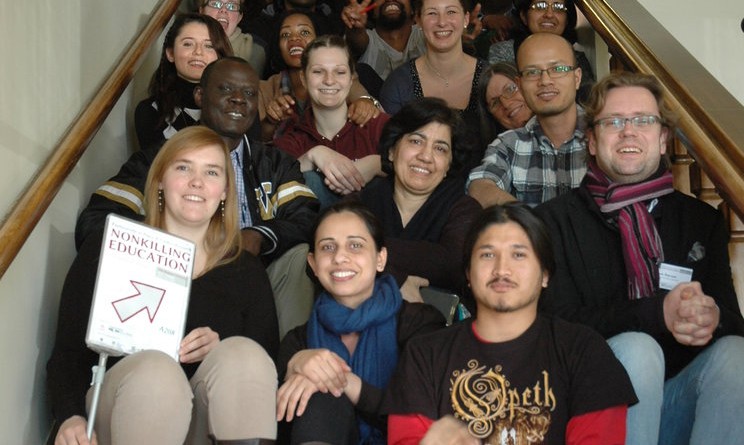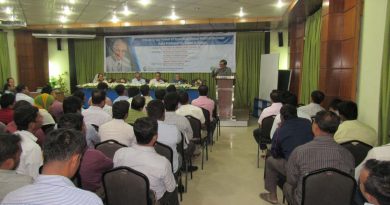Nonkilling Education: What Needs to Change
Over sixty participants from 20 countries gathered in Vasa, Finland, for an exploratory conference on Nonkilling Education, convened on March 24-25, 2015, by the Center for Global Nonkilling and Åbo Akademi University’s Program in Peace, Mediation and Conflict Research. The conference program also included participants from Aalborg University (Denmark), the University of British Columbia (Canada), the UNESCO Chair of Philosophy for Peace at Jaume I University (Spain), Rîga Stradiòš University (Latvia) and the University of Otago (New Zealand).
This exploratory interdisciplinary conference focusing on the role and potential of education in bringing about a killing-free world, bringing together scholars and practitioners in the fields of education, anthropology, psychology, political science and philosophy to promote a creative exchange of ideas. Time was put aside during the conference to draft a “Vasa Statement on Education for Killing-free Societies”, with key recommendations that will be issued publicly. A collective volume integrated in CGNK’s Nonkilling Studies series will also follow.
Participants highlighted the need to refocus child-rearing practices in the Zero to Six period with an understanding of its importance for bringing up healthy nonkilling individuals (evidence on importance of prolonged breast-feeding, cuddling, extensive alloparenting, etc.). Small schools embedded within small communities with active teachers-family interaction and involvement was also signalled out as an appropriate educational environment for building killing-free communities. Where applicable, multicultural environments should be used as a resource for cooperative learning and not as a problem.
Other changes suggested in the discussions is the need to shift from competitive/individualistic education and play to cooperative and experiential approaches that enable social-emotional competences and active critical thinking. Authority and obedience as relational principles at school, families and communities need to shift toward a common ethic of care, compassion and kindness, incorporating restorative (vs. punitive), peer mediation and other approaches to problem-solving. Violent role-models, especially in the media and entertainment, also need to be minimized countering them with the inclusion of nonviolence and conflict prevention/management as overarching social competences.




